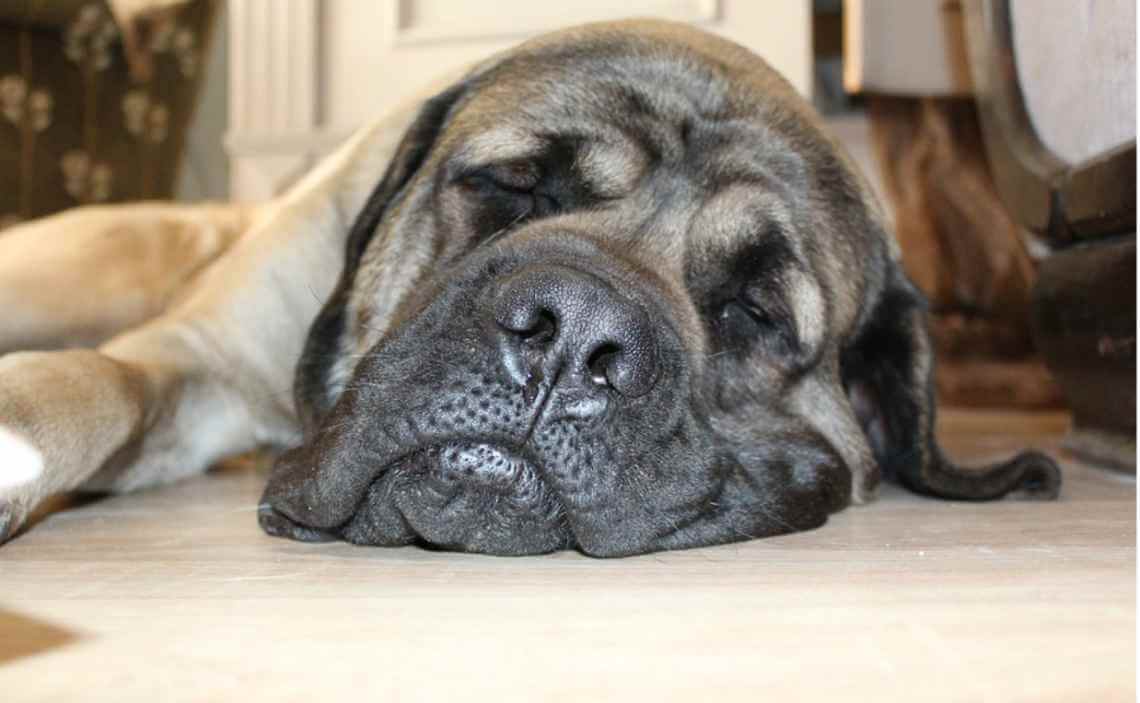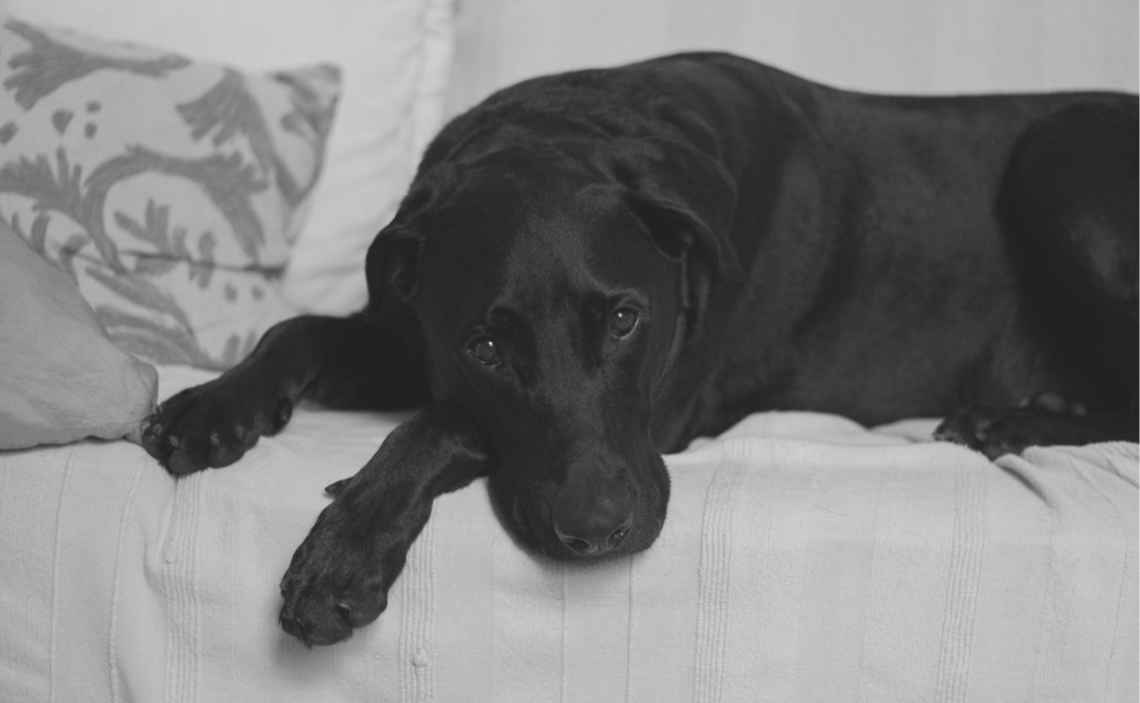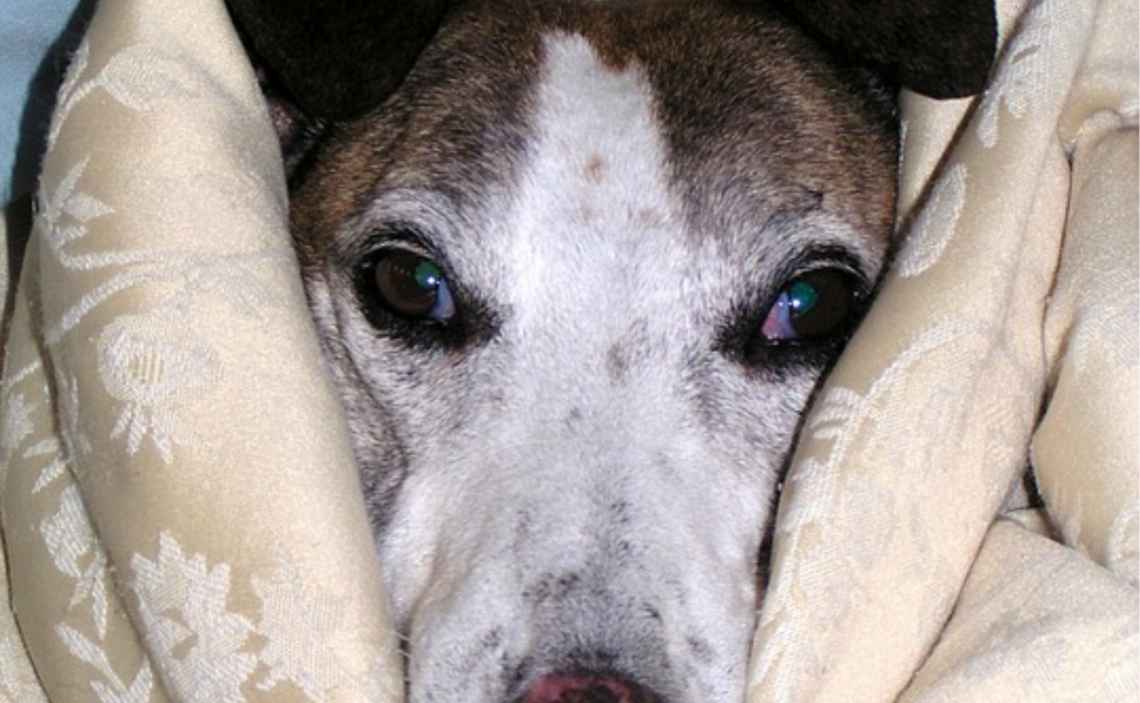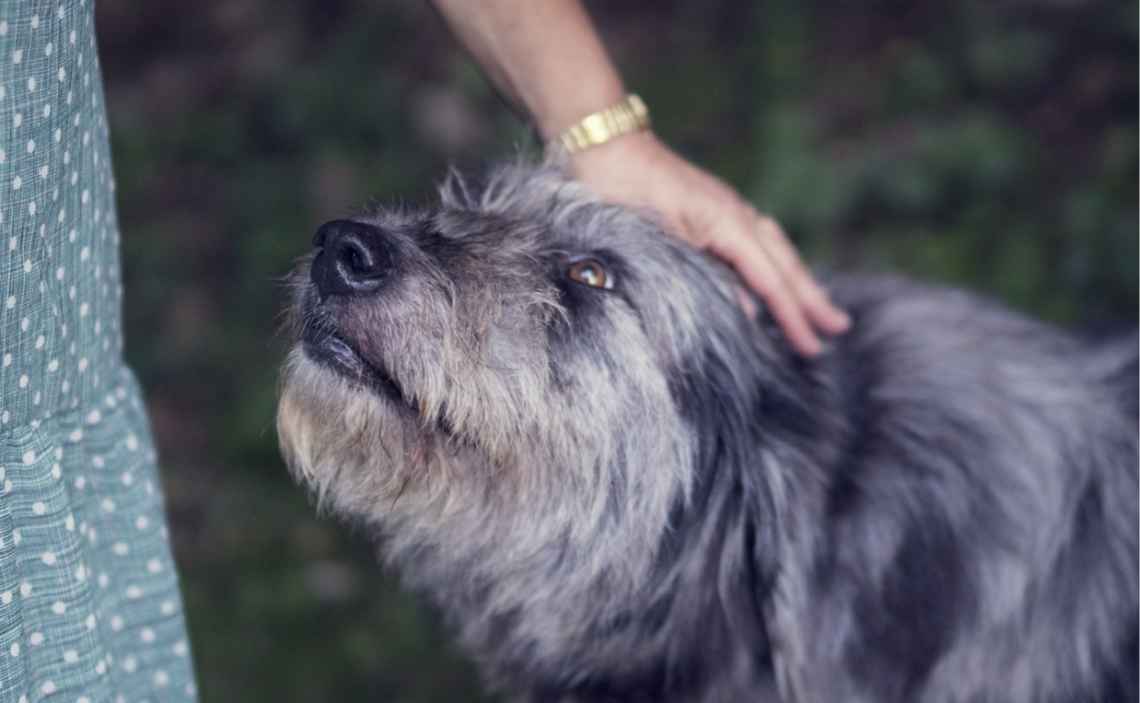
Just like people, dogs get sick. Your dog should be seen by your vet if you think he or she may have a serious condition. However, some minor issues can be dealt with at home.
Learning how to interpret the danger signs that your dog might be sick can help you decide the best course of action in the event your dog falls ill.
It’s not easy to detect sickness in most dogs, so you’ll need to consider a range of subtle signs that may indicate a potential problem. If you do notice anything that really concerns you, don’t rely on the internet or self-help books. It’s best to visit your vet sooner rather than later.
Here are 10 physical signs that indicate your dog may be sick and what you should do if your dog presents these symptoms.

-
Your dog has bad breath
Dog breath usually doesn’t smell too good in general, but sometimes a bad smell is a signal there might be a life-threatening problem. Bad dog breath is caused by the bacteria that forms plague on your dog’s teeth, usually indicating dental disease. The bacteria on the gums can travel into the nasal passages, leading to respiratory problem. If they get into your dog’s blood stream, it could wreak havoc in the liver, kidneys or heart. Brush your dog’s teeth daily and give him dog treats or toys developed for dental hygiene to prevent these types of issues.
-
Your dog’s ears droop
Many dogs are expressive with their ears, but if you notice the ears drooping more than usual you might want to get your dog checked for an ear infection. Drooping ears, redness, discharge and a bad odor in the ears are reasons to have a vet examine your dog. If not treated, outer infections can turn into middle and inner ear infections, which can cause hearing loss.
-
Your dog has black areas on his or her gums
Dental disease is extremely common; affecting 78 percent of dogs over the age of three. If not treated, it can cause tooth loss. If you notice your dog’s gums are inflamed or develop black patches, you need to make an appointment to get her seen by a vet. Click here to read more on hidden dental disease in dogs.

-
Your dog doesn’t have a waist
A healthy dog will have a tucked-in area under her rib cage and hips. If she doesn’t have this, she is probably overweight. Approximately 56 percent of dogs in the U.S. are overweight or obese. Just like in humans, obesity in dogs can lead to a host of other diseases, like diabetes, kidney disease and a lower life expectancy. Click here to read more on preventing obesity in your dog.
-
Your dog’s eyes are cloudy
Cloudy eyes usually indicate cataracts. If more than half of your dog’s eyes are cloudy, vision is obstructed and your dog could eventually go blind. Cataracts can be caused by diabetes. Another cause of cloudy eyes is nuclear sclerosis, a benign condition caused by aging. If your dog’s eyes are cloudy, definitely get him or her checked out by a vet.
-
Your dog is having trouble with his bladder
If your dog is house-trained and suddenly is having accidents, he may be having trouble with his kidneys, diabetes or liver disease. Notice whether he is drinking excessively as well. These are serious conditions you will want your vet to treat right away.
-
Your dog keeps chasing her tail
If you notice your dog running in circles or chasing her tail, she might have an inner ear disease called labyrinthitis. It affects a dog’s posture, balance and coordination, so she may appear to be dizzy for no reason. Another cause could be ideopathi vestibular syndrome, which usually presents in older dogs. The cause of this disease is unknown, but it may require hospitalization. Don’t hesitate to call the vet if you suspect your dog could have either of these illnesses.

-
Your dog’s breathing is laborious
Panting is your dog’s way of cooling down, but labored breathing, also called dyspnea, can indicate a life-threatening illness. Dyspnea can be caused by complications in the nose, throat, lungs or chest. The labored breathing is caused by not getting enough oxygen. Difficulties breathing can also be caused by heartworm disease, which can cause fatal damage to the lungs. Luckily, heartworm is treatable if caught soon enough, so don’t hesitate to call your vet. Learn more about heartworms and other types of worms your dog can contract.
-
Your dog has diarrhea
If your dog has persistent constipation or diarrhea that lasts for longer than 48 hours or there are signs of blood or mucus in the stool, it is recommended you see your vet. Be sure to bring a fresh stool sample with you. Click here to learn more about what your dog’s stool should – and shouldn’t – look like.
-
Your dog won’t eat
Loss of appetite may indicate illness. Just like in people, there are a variety of reasons a dog might refuse to eat.
-
Illness
Loss of appetite can be a symptom of some types of illness, like cancer, systemic infections, pain, liver problems or kidney failure. It is vitally important that you contact your veterinarian if your dog refuses to eat for more than 24 hours. Although loss of appetite doesn’t necessarily indicate a serious disease, it could be a sign of something significant going on.

-
Dental disease
If your dog is having mouth pain, he might have a broken or loose tooth, severe gingivitis or even an oral tumor. Make an appointment to have him seen soon.
-
Vaccinations
A temporary loss of appetite may accompany some types of vaccinations. Although immunizations have saved the lives of thousands of dogs in the past 100 years, they do sometimes have adverse effects. Most of the time a reaction to a vaccination is minor and temporary. Here’s what you should know about immunizing your dog.
-
Travel and unfamiliar surroundings
Sometimes dogs will not want to eat due to motion sickness or just being in an unfamiliar environment. Give them a day or so to start feeling better before worrying too much about loss of appetite when traveling.

Your dog is an important member of your family. We know you want your dog to be happy and healthy. Since your dog can’t tell you how he or she is feeling, it’s up to you to recognize the symptoms as early as possible. Schedule an appointment with your veterinarian if you have any concerns about your dog’s health. Click here to learn more about how to choose the best veterinarian for your dog.
When they can’t be at home, bring your dog to the next best place – Canine Campus! We spend all our energy keeping your dog healthy and happy. At Canine Campus, your co-ed will feel like he or she is staying at an Ivy League mansion – not a dog boarding kennel. And while you’re away, you can always log into K-9 Connect to watch your pup having fun on campus!













Yes I have a question about my dog it’s a little dog and she will not eat but she eats grass outside and does go poop outside and pee outside what could I give her to help her out she has not had any of her shots yet was going to get them for her next week she just turned a year old please help me
Honestly Dena, you need to take your pup to a veterinarian who can assess your dog and make a professional recommendation for her care. Thank you for reading our blog post – hope it was helpful for you in some way. Hope your pup is feeling better by now!
I have a 9 week old pup, lab/collie mix. He is very spunky and playful. I’ve been fearful of even letting him outside since he hasn’t had his shots.or anything. Yesterday, he went out with my daughter for about 15 minutes and just played around in the front yard. About an hour after he came back inside he threw up a mix of things he should not have eaten, a little bit of food, a small sticker, what appeared to be a stick, and something else that I’m not sure about. It was all small but it should not have been eaten! After that he ran around for a little while longer (maybe 1-2 hrs, then he acted as if he was going to vomit, but nothing came up. He did that a few times. He would normally lay down around the time we eat dinner so I was hoping that was the cause for him getting sleepy, but he would have normally gotten up around the same time as me (5am) and been happy and playing. This morning he is not himself at all, he drank very little and ate a very small bit of food, other than that has slept. He is awake but just laying around. Our local vets are not open yet, the emergency animal hospital is almost 2 hours from us. Hoping someone would have some advice.
I hope your pup is feeling better by now! Puppies often eat things they shouldn’t because they’re exploring their world through their tastebuds, much like toddlers. I hope you were able to have your puppy seen to make sure everything was OK. Thanks for visiting our blog and hope you come back and tell us how your puppy is doing!